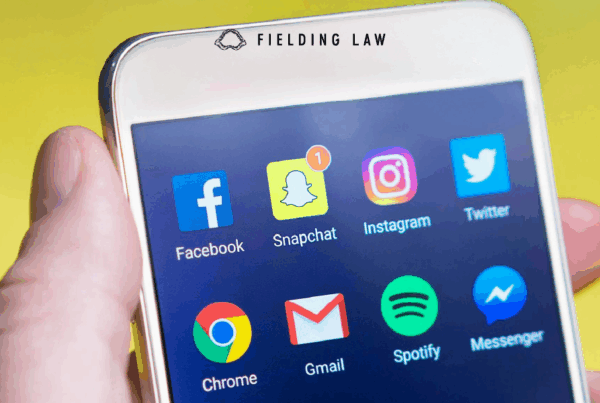As we commemorate National Brain Injury Awareness Month, our hearts are with those navigating the challenges of brain injuries. At Fielding Law (Call us at 833.88.SHARK), we not only strive to raise awareness but also extend a compassionate guide. This article delves into vital tips for post-brain injury care, insights into pursuing a personal injury claim, proving liability, and navigating discussions with insurance companies.
Understanding Brain Injuries
National Brain Injury Awareness Month prompts a deeper exploration into the intricate challenges posed by brain injuries, extending beyond the visible aspects. Despite being largely unseen, these injuries intricately affect individuals, introducing cognitive, emotional, and physical challenges that reshape lives. Their impact resonates beyond the individual, creating ripples that extend to families and communities at large.
Tips After a Brain Injury
- Prioritize Rest: Adequate rest is crucial for brain healing; avoid mental and physical strain.
- Follow Medical Advice: Adhering to prescribed treatments aids recovery and strengthens potential legal claims.
- Document Changes: Track cognitive, emotional, and physical changes for both medical and legal purposes.
Can You Pursue a Personal Injury Claim for a Brain Injury?
Certainly, individuals can pursue a personal injury claim for a brain injury if it stems from someone else’s negligence. Whether the injury results from a car accident, slip and fall, medical malpractice, or another incident where negligence is a factor, seeking justice through a personal injury claim is a viable option. The process involves establishing that the responsible party had a duty of care, breached that duty, and directly caused the brain injury. Collating evidence, such as medical records and witness statements, is crucial in proving this connection. Consulting with an experienced personal injury attorney is essential to navigate the complexities of brain injury cases, ensuring proper legal procedures are followed, and victims receive rightful compensation for medical expenses, lost wages, and the profound impact on their lives.
What to Do After a TBI
- Seek Immediate Medical Attention:
- Get prompt medical care for your TBI. Documenting the injury is essential for building a strong legal case.
- Preserve Evidence:
- Preserve any evidence related to the incident. This includes accident reports, photographs, witness statements, and any relevant documents.
- Consult with a Personal Injury Attorney:
- Reach out to a personal injury attorney specializing in TBI cases. They can provide legal advice based on the circumstances of your injury.
- Document Everything:
- Keep a detailed record of your medical treatment, symptoms, and the impact on your daily life. This documentation can be crucial in establishing the extent of your damages.
- Follow Medical Advice:
- Adhere to the medical advice provided by healthcare professionals. This not only contributes to your recovery but also strengthens the connection between the accident and your injuries.
- Identify Responsible Parties:
- Work with your attorney to identify parties responsible for the incident. This may include individuals, businesses, or entities whose negligence contributed to your TBI.
- Insurance Communication:
- Direct all communication with insurance companies through your attorney. Insurance adjusters may attempt to settle quickly, and having legal representation ensures your rights are protected.
- Evaluate Long-Term Consequences:
- Assess the potential long-term consequences of your TBI, including ongoing medical needs, rehabilitation, and any impact on your ability to work and enjoy life.
- Negotiation or Litigation:
- Your attorney will negotiate with the responsible parties and their insurers to seek fair compensation. If a settlement cannot be reached, they will be prepared to take the case to court.
- Legal Timeframes:
- Be aware of legal timeframes for filing a personal injury lawsuit. Your attorney will ensure all deadlines are met.
- Financial Recovery:
- Pursue compensation for medical expenses, lost wages, pain and suffering, and other damages resulting from the TBI.
- Supportive Network:
- Surround yourself with a supportive network, including family, friends, and mental health professionals. Coping with a TBI can be challenging, and emotional well-being is essential.
How Do I Prove Liability?
Proving liability necessitates a meticulous approach. Start by gathering comprehensive evidence, documenting the incident thoroughly, collecting witness statements, and securing relevant records that can substantiate your case. Additionally, consider obtaining expert opinions, as their assessments can lend valuable insights into the specifics of the situation. These steps collectively form a robust strategy to establish liability and fortify your position in seeking legal recourse for the damages incurred.
Why Hire Fielding Law?
In the intricate landscape of brain injury cases, having compassionate and capable legal representation is paramount. At Fielding Law, our approach is rooted in empathy and understanding. We stand as advocates for brain injury survivors, offering not just legal expertise but a compassionate partnership throughout the recovery and legal processes. Call Fielding Law at 833.88.SHARK (833-887-4275) for a free consultation, and let us be your allies in healing and seeking justice.
Note: Information provided is for educational purposes and does not constitute legal advice. Always consult with a qualified attorney for legal concerns.





